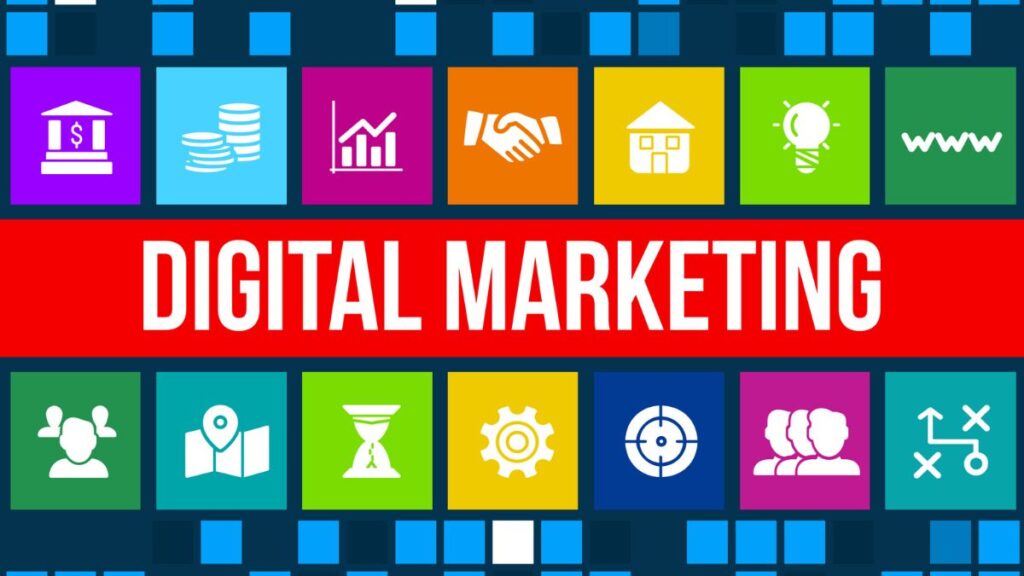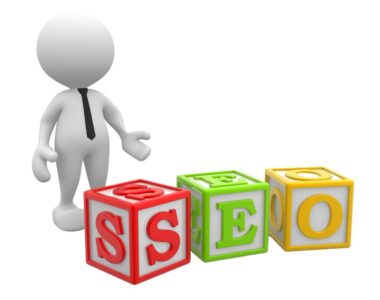In today’s digital age, small businesses must leverage cheap digital strategies to boost their return on investment (ROI). With limited resources and budget constraints, it can be challenging for small businesses to compete with larger corporations online. However, implementing cost-effective digital strategies allows small businesses to level the playing field and reach their target audience without breaking the bank. In this article, we will explore some cheap digital strategies that small businesses can use to improve their online presence and increase their ROI.
Digital Marketing: A Game Changer in Today’s Business Landscape
Where traditional marketing avenues may demand a hefty price tag, digital marketing strategies provide a more cost-effective alternative. Gone are the days when reaching your target audience required massive billboards or pricey TV ads. Today, online marketing campaigns can tap into a global audience with just a few clicks.
- The Relevance of Digital Marketing Strategies: Digital strategies have overshadowed traditional marketing tactics, especially when considering reach, engagement, and customization.
- The Wide Scope of Online Marketing: Online marketing isn’t just about having a website or a Facebook page. From blog posts that establish your authority to affiliate marketing partnerships that boost revenue, the digital realm offers many opportunities.
Cheap Digital Strategies to Boost Your ROI
A. Search Engine Optimization (SEO)
One of the most effective and cheap digital strategies for small businesses is search engine optimization (SEO). SEO involves optimizing your website and content to rank higher in search engine results pages (SERPs). By targeting relevant keywords and optimizing your website’s structure, you can improve your organic search visibility and drive more targeted traffic to your site.
- Understanding SEO: SEO is a complex field, but at its core, it involves making your website and content more attractive to search engines. This involves a variety of tactics, including keyword optimization, link building, and technical SEO. By understanding the basics of SEO, small businesses can start to implement these tactics and improve their online visibility.
- Implementing SEO Strategies: To get started with SEO, conduct keyword research to identify the keywords your target audience is using to search for products or services similar to yours. Once you have a list of keywords, incorporate them naturally into your website’s content, meta tags, and URLs. Additionally, focus on creating high-quality, informative content that provides value to your audience. Regularly updating your website with fresh content can also help improve your search rankings.
- The Benefits of SEO: SEO can provide numerous benefits for small businesses. It can help improve your website’s visibility in search engine results, leading to increased traffic and sales. SEO can also help you reach your target audience more effectively, as you can target keywords that are relevant to your business and audience. By investing in SEO, small businesses can achieve a higher ROI and compete more effectively in the online marketplace.
B. Content Marketing
Content marketing is another cheap digital strategy that can yield significant results for small businesses. Creating and distributing valuable, relevant, and consistent content can attract and engage your target audience. Content marketing can take various forms, including blog posts, articles, videos, infographics, and social media posts.
- Understanding Content Marketing: Content marketing involves creating and sharing valuable content to attract and engage a clearly defined audience. The goal is to establish your business as a thought leader in your industry, build trust with your audience, and drive profitable customer action. By understanding the principles of content marketing, small businesses can leverage this tactic to boost their ROI.
- Implementing Content Marketing Tactics: To leverage content marketing effectively, identify the topics and themes that resonate with your target audience. Create a content calendar to plan and organize your content creation efforts. Consistency is key in content marketing, so aim to publish content regularly. Promote your content through various channels, such as social media, email newsletters, and guest blogging, to increase its reach and visibility.
- The Benefits of Content Marketing: Content marketing can provide numerous benefits for small businesses. It can help you establish your business as a thought leader in your industry, build trust with your audience, and drive profitable customer action. Content marketing can also help you improve your SEO, as search engines reward businesses that publish high-quality, relevant content. By investing in content marketing, small businesses can boost their ROI and compete more effectively in the online marketplace.
C. Social Media Marketing
Social media marketing is a cost-effective way for small businesses to connect with their target audience and build brand awareness. With billions of active users on platforms like Facebook, Instagram, Twitter, and LinkedIn, social media provides a vast pool of potential customers.
- Understanding Social Media Marketing: Social media marketing involves using social media platforms to promote your business, products, or services. This can involve a variety of tactics, including posting regular updates, engaging with your audience, and running social media ads. By understanding the basics of social media marketing, small businesses can start to leverage this tactic to boost their ROI.
- Implementing Social Media Marketing Tactics: To make the most of social media marketing, identify the platforms where your target audience is most active. Create engaging and shareable content that aligns with your brand’s voice and values. Use hashtags and relevant keywords to increase the discoverability of your posts. Engage with your audience by responding to comments and messages promptly. Additionally, consider running targeted social media ads to reach a wider audience and drive more traffic to your website.
- The Benefits of Social Media Marketing: Social media marketing can provide numerous benefits for small businesses. It can help you reach a wider audience, engage with your customers, and build brand awareness. Social media marketing can also help you drive traffic to your website, increase sales, and improve your SEO. By investing in social media marketing, small businesses can boost their ROI and compete more effectively in the online marketplace.
D. Email Marketing
Email marketing is a highly effective and cheap digital strategy for small businesses. You can nurture relationships and drive repeat business by building an email list of interested prospects and customers. Email marketing lets you send personalized messages, promotions, and updates directly to your subscribers’ inboxes.
- Understanding Email Marketing: Email marketing involves sending promotional messages to people who have signed up to receive them. This can include newsletters, promotional offers, and updates about your business. By understanding the basics of email marketing, small businesses can leverage this tactic to boost their ROI.
- Implementing Email Marketing Tactics: To get started with email marketing, create compelling opt-in forms on your website to encourage visitors to subscribe to your email list. Offer incentives, such as exclusive discounts or valuable content, to entice people to sign up. Segment your email list based on demographics, interests, or purchase history to send targeted and relevant emails. Use a reputable email marketing platform to automate your campaigns and track their performance.
- The Benefits of Email Marketing: Email marketing can provide numerous benefits for small businesses. It can help you build customer relationships, drive repeat business, and increase sales. Email marketing can also help you reach your target audience more effectively, as you can send personalized messages directly to their inboxes. By investing in email marketing, small businesses can boost their ROI and compete more effectively in the online marketplace.
E. Pay-Per-Click (PPC) Advertising
Pay-per-click (PPC) advertising is a digital advertising model where advertisers pay a fee each time their ad is clicked. PPC advertising platforms, such as Google Ads and Bing Ads, allow small businesses to display their ads prominently in search engine results and relevant websites.
- Understanding PPC Advertising: PPC advertising involves paying a fee each time your ads are clicked. This can be a cost-effective way to drive traffic to your website, as you only pay when someone actually clicks on your ad. By understanding the basics of PPC advertising, small businesses can start to leverage this tactic to boost their ROI.
- Implementing PPC Advertising Tactics: To make the most of PPC advertising, start by conducting keyword research to identify the keywords your target audience is searching for. Create compelling ad copy that entices users to click on your ads. Set a budget for your PPC campaigns and monitor their performance regularly. Adjust your bids and targeting settings to optimize your campaigns and maximize ROI.
- The Benefits of PPC Advertising: PPC advertising can provide numerous benefits for small businesses. It can help drive traffic to your website, increase sales, and reach your target audience more effectively. PPC advertising can also provide immediate results, as you can start driving traffic to your website as soon as your ads are live. By investing in PPC advertising, small businesses can boost their ROI and compete more effectively in the online marketplace.
Conclusion
The journey of boosting a small business’s ROI in the digital sphere can seem daunting. However, you can achieve commendable returns with the right mix of digital strategies—from content creation to pay-per-click (PPC) campaigns. Remember, it’s not about how much you spend but where and how you invest. By integrating these digital marketing strategies, you’ll level the playing field against bigger competitors and ensure sustainable growth and profit in the long run.





